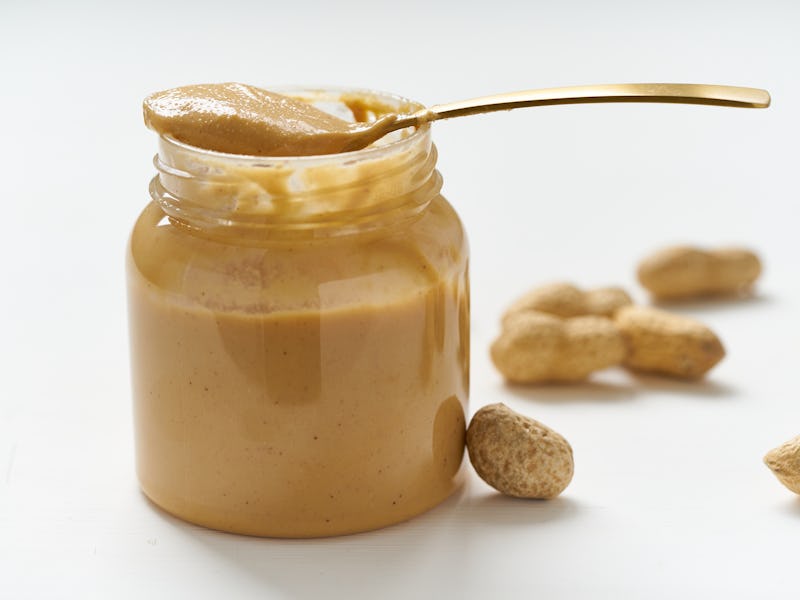Is The ‘No-Nut November’ Challenge Worth it? Experts Reveal Its Unexpected Health Impacts
Turns out our research on masturbation’s benefits and drawbacks is still pretty sketchy.

Friday marked the end of November and No-Nut November, the exercise in which participants endeavor to forgo masturbation and ejaculation for the entire month. Motivations for this challenge vary, but underpinning them is the unsubstantiated claim that this venture results in higher levels of testosterone, bigger muscle gains, and higher confidence.
Despite the eons that living creatures have been masturbating, the science on this activity’s potential benefits and detriments is still quite murky. The best evidence we have shows that whether or not you abstain from pleasuring yourself to the point of ejaculation, not much changes physiologically. However, research and experts suggest that both excess masturbation and excess abstinence can take a toll on a person’s mental health.
What does a month of abstinence do to your mind and body?
Physiologically, not much, says Channa Amarasekera, a urologist at Northwestern Medicine and urology professor at Northwestern University Feinberg School of Medicine. Participants often hope that a month off from masturbation will increase their testosterone levels. But Amarasekera tells Inverse “there’s no convincing evidence that it changes testosterone levels in any way.” He also mentions that a month without ejaculation carries the risk of epididymal hypertension, a.k.a. blue balls. This temporary condition, which comes from arousal without orgasm, may cause some pain, “but that’s often short term,” he says.
Evidence on how No-Nut November might actually harm your body also comes up short. While some studies suggest that sperm quality, like motility, can degrade after five days without ejaculation, he says that data is far from robust. He adds that there is “not-great evidence that ejaculating can lower your risk of prostate cancer. He’s skeptical of available data because he has yet to see a rigorous, randomized controlled trial with a large cohort of participants, which would yield the strongest data on masturbation’s or abstinence’s effects.
While some evidence suggests that masturbation releases feel-good hormones dopamine and oxytocin, which theoretically improves well-being overall, Amarasekera is skeptical that we have clearly defined the amounts of these reward chemicals released during and after ejaculation.
That said, anyone who pursues this challenge “is unlikely to experience any harmful side effects” physiologically. He says the body just reabsorbs the sperm, and there’s no harm from that.
Are there benefits to abstaining from masturbation?
“There's no clear evidence to show that it actually helps in any way,” Amarasekera says. He emphasizes, however, that if someone gets value in a month off from self-pleasure, then they should, by all means, go for it. “If people are able to abstain for a month, then great, I think they can feel a sense of accomplishment for doing that,” he says. They shouldn’t, however, do it with the expectation of more muscle mass or greater sexual prowess.
Social psychologist Justin Lehmiller, a research fellow at Indiana University’s Kinsey Institute and host of the Sex and Psychology Podcast agrees. “There is no scientific evidence that abstaining from masturbation, orgasm, or ejaculation yields health benefits,” he writes to Inverse.
But he also adds nuance to this pursuit. “People who partake for these sorts of reasons might very well have a positive experience because they’re motivated by things like curiosity, arousal, or pleasure,” Lehmiller writes. Some people, for example, just want to see how it feels to take a break from this outlet. Others avoid it temporarily because they believe when they next ejaculate, it’ll be the “big nut” — a face-melting orgasm. Another group may derive pleasure from feeling arousal but deny themselves permission to act on it.
All of these benefits are subjective depending on what the individual’s goal is, and none of them are physiological. With that in mind, the benefit is in the eye of the withholder.
That’s not to say masturbation of any kind is always healthy. Amarasekera recognizes that excessive masturbation can also pose drawbacks, notably when it “interferes with daily living” or a sexual relationship. He might recommend abstinence “to a very specific subset of patients” of this sort.
Are there any drawbacks?
“Potentially, you can do some psychological harm by abstaining for that long,” Amarasekera says. For those with partners, a month off from sexual stimulation impacts more than just them. Choosing not to have sex for a month could affect their relationship if their partner isn’t on board.
Lehmiller also touches on the psychological risk to the person trying this challenge. “When the motivating factor here is sexual shame, that’s another story,” Lehmiller adds. This group may actually make themselves feel worse than when they started, especially if they don’t make it the full 30 days. If the result is that participants “just end up feeling more ashamed or bad about themselves … that’s a bad outcome,” he writes.
With no resounding conclusion, know that when it comes to reliable evidence, masturbation is neither good nor bad — it’s all relative.